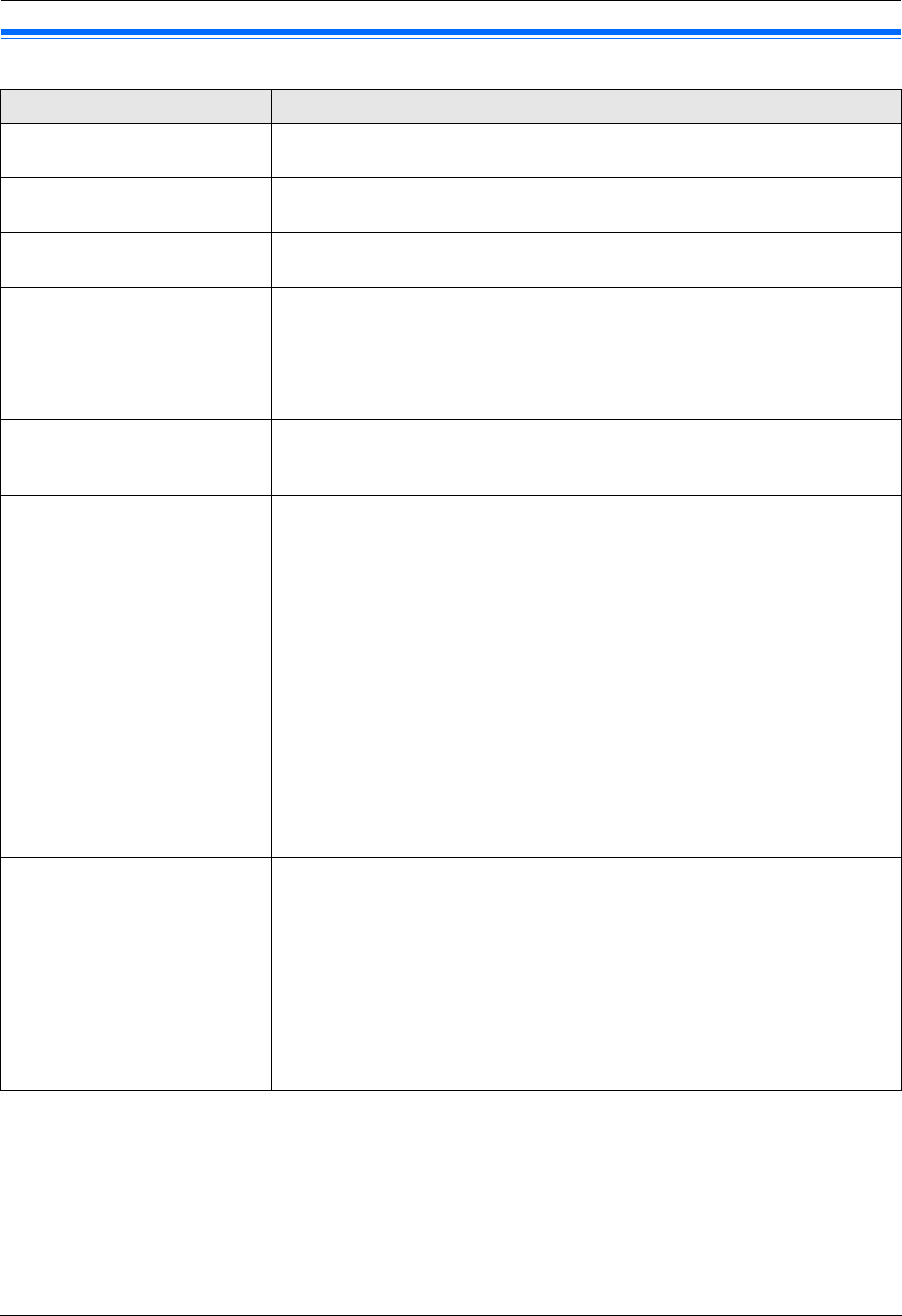
9. Programmable Features
57
9.2 Basic features
Feature/Code Selection
Setting the date and time
{#}{1}{0}{1}
Enter the date and time using the dial keypad. See page 22 for details.
Setting your logo
{#}{1}{0}{2}
Enter your logo using the dial keypad. See page 23 for details.
Setting your fax number
{#}{1}{0}{3}
Enter your fax number using the dial keypad. See page 23 for details.
Selecting the language
{#}{1}{1}{0}
The display and reports will be in the selected language.
{1} “English” (default): English is used.
{2} “Spanish”: Spanish is used.
1. {Menu} i {#}{1}{1}{0}
2. Press {1} or {2} to select the desired language. i {Set} i {Menu}
Setting the dialing mode
{#}{1}{2}{0}
{1} “Pulse”
{2} “Tone” (default)
See page 19 for details.
Setting flash time
{#}{1}{2}{1}
The flash time depends on your telephone exchange or host PBX.
{0} “900ms”
{1} “700ms” (default)
{2} “600ms”
{3} “400ms”
{4} “300ms”
{5} “250ms”
{6} “200ms”
{7} “160ms”
{8} “110ms”
{9} “100ms”
{*} “90ms”
{#} “80ms”
Note:
L If the unit is connected via a PBX, PBX functions (transferring a call, etc.)
might not work correctly. Consult your PBX supplier for the correct setting.
Changing the password for
feature programming via
remote operation
{#}{1}{5}{5}
1. {Menu} i {#}{1}{5}{5} i {Set}
2. Enter the current password. i {Set}
L The default password is “1234”.
3. Enter a new 4-digit password using 0–9. i {Set}
4. Enter the new password again. i {Set} i {Menu}
Note:
L It is recommended that you change this password from the default
password.
L This password is also used for feature programming via a web browser.


















